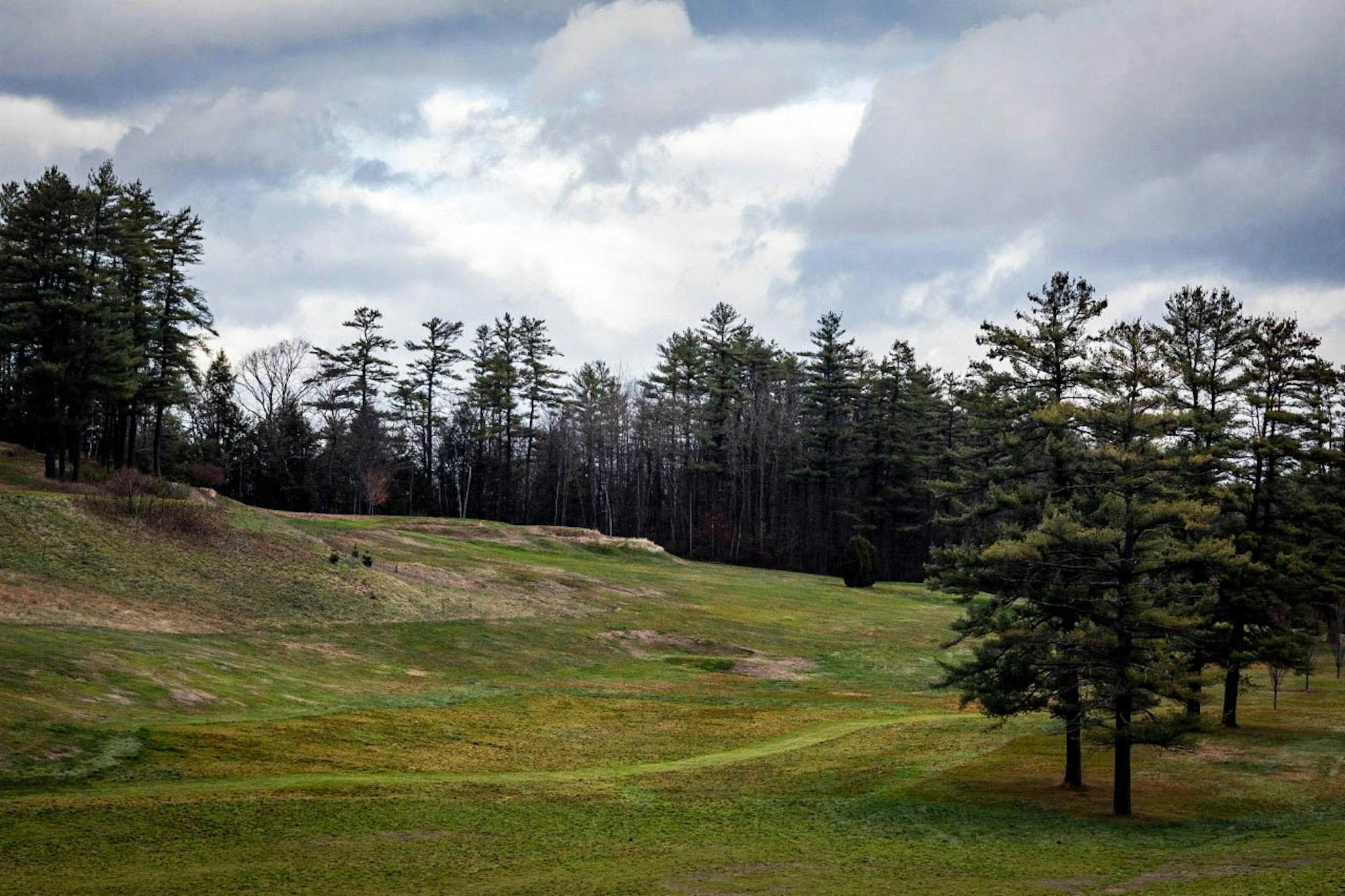On Monday evening, the College held the third of five community sessions to discuss and gather feedback for its plan to build three apartment-style residential buildings along the west side of Lyme Road. The session included presentations about transportation, parking and multi-modal access and project sustainability goals.
Vice president of campus services and institutional projects Josh Keniston said the College plans to complete the project by fall of 2025, with construction beginning “at some point next year.”
Keniston added that the College must use “currently available resources” to fund the project, including institutional reserves or the infrastructure renewal fund. While the renewal fund cannot directly fund this project, Keniston said it can go toward building “swing space.”
Estimated to house 400 undergraduate students or 300 graduate students, the complexes include gathering spaces in each of the three buildings, a fitness center and apartments for staff and faculty, according to Campus Services’ proposal.
During the presentation, Jason Plourde, a transportation planner and traffic engineer at engineering firm VHB, said that development along Lyme Road will not have a notable impact on traffic. Plourde said he is still preparing a traffic study, conducting intersection capacity analysis and incorporating bike and pedestrian connectivity into development.
In addition, the College announced plans to expand its campus shuttle system at the session. On Monday, new “Campus Connector” buses started running to housing in Summit on Juniper. Plans are underway to adopt an integrated campus shuttle system and see the headway reduced to six to seven minutes rather than the current 15-minute intervals.
Director of campus planning Joanna Whitcomb alongside development consultant Joe Shevell also described plans to create a mobility hub at the entrance of the apartment complexes, which will include a shelter for waiting for pick-up and drop-off. The hub will serve as a centralized place for transportation needs, including electric vehicle charging and bike and scooter shares.
The College plans to create 110 parking spaces where the apartments will be located — 100 for students and 10 for guests and staff – with the potential to add an additional 57 extra spaces if the College were to expand westward into Pine Park.
Government professor and president of the Pine Park Board of Trustees Linda Fowler expressed concerns regarding the possibility of expanding westward. She noted that the west side of Lyme Road is “very flat” but then drops down to the Girl Brook ravine, which is steep. Fowler added that Pine Park has experienced problems of erosion from the Dartmouth golf course in the past because of the steep slopes.
“If you start pushing parking farther west, you pretty soon come up against the fact that you're right on the edge of that very steep ravine,” Fowler said.
During the session, Hanover resident Bill Hamlen ’84 also inquired into whether the College plans to build underground parking, which administrators said they would consider.
“The College and the town should be exploring more underground parking,” Hamlen said. “We live in an area with snowfall three or four months a year, and Hanover begs for underground parking from a land use point of view but also from an environmental concerns point of view.”
Monday’s community session ended with a discussion about the College’s sustainability goals, which entails addressing the goals in the “Our Green Future” report, and its commitment to Hanover’s transition to 100% renewable energy.
Fowler said that she “objects strongly” to moving undergraduates so far from the center of campus. She added that Dartmouth’s faculty “overwhelmingly” voted in February against building student residences on Garipay field.
In the 2020 master plan of the project, the College originally planned to build housing on Crosby Street, according to Fowler. In comparison to the original plan, Fowler believes the location alongside Lyme Road is too far for students.
“All the College has done is move [the project] across the street,” Fowler said. “The faculty feels very strongly that we’re a residential college, and that means residences.”
On Wednesday, the Pine Park Association and the College met to discuss environmental concerns associated with the project, Fowler said.
“We need to identify the risks that we see of having a large concentration of undergraduates right on the boundary of Pine Park and … start exploring what resources [the College] is going to put towards minimizing those risks,” Fowler said.
Keniston said the conversation was “really productive,” and that the Pine Park Association helped the College think about how best to be a partner while also engaging students.
Student Assembly president David Millman ’23, who also served on the Lyme Road student housing focus group this year, said he felt the sessions were “very directed towards the non-student population in Hanover,” which has resulted in a lack of student engagement.
“There has been no direct advertisement towards students on campus or off campus,” Millman said. “ In addition, these sessions are held in the summer where the majority of students are not on campus.”
The College’s next session will be held on Aug. 4 and focuses on programming and student experience, which Millman hopes will collect student feedback more effectively.




